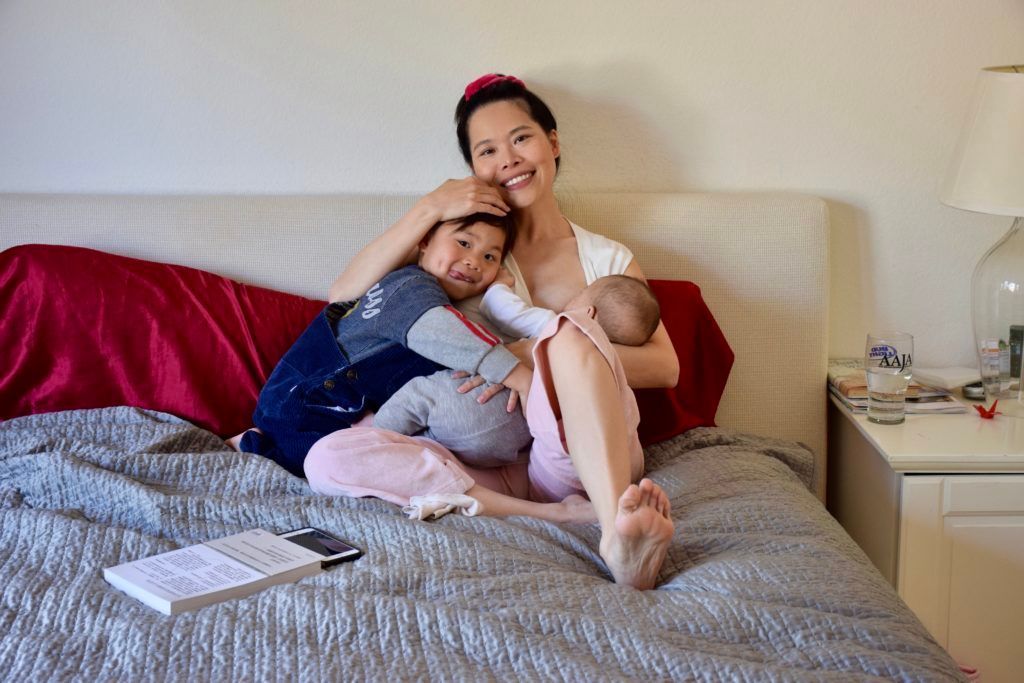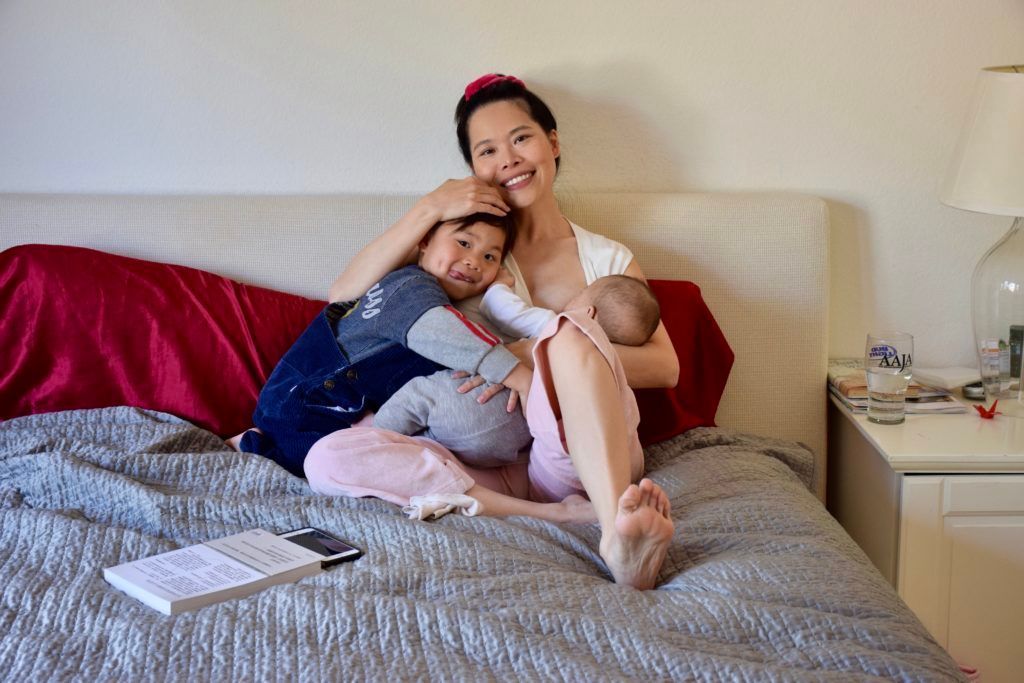This is My Why: A Reflection on #NBM2023
I was a breastfeeding mom for six years. During the six years, I have been separated from my baby for three months for work reasons, I have flown to four different cities with my pump within six months, I have been sent to the emergency room with mastitis and high fever, my milk supply has gone down dramatically due to workplace pressure, and finally, I lost my job over breastfeeding discrimination claims.
Nevertheless, I persisted. I often hear people ask, “Why? Isn’t it hard? Aren’t you stressed?”
Of course it’s hard. Of course I’m stressed. I come from a culture where breastfeeding has traditionally been relatively discouraged. I was born and raised in Taiwan in the 1980s. At that time, the marketing of baby formula reached its peak. Under the vigorous promotion of formula manufacturers, almost everyone was brainwashed into thinking that infant formula milk was a better choice than breast milk. In 1989, the feeding rate of newborn babies in Taiwan was only 5.6%. Many Chinese elders still believe that formula milk is better, including my own mother and in-laws. They didn’t really support me to breastfeed when my first child was born in 2013.

To-wen Tseng cuddling with her two boys
The hardest part came when my child was three months old and I returned to work. Unfortunately, it was a very breast-unfriendly environment. The company did not provide a place for nursing moms to pump in spite of the California laws. I was forced to pump in a toilet stall. After pumping, when I tried to wash my pump parts in the company kitchen, some male colleagues called loudly behind me, “Don’t wash your dirty underpants in the office.”
The unfriendly working environment put me under undue pressure. When I was pumping in the toilet stall, my milk dropped into the bottle drop by drop, and my tears rolled down my cheek.
Then my milk supply went down. I began to doubt whether I had enough milk to feed my baby. I began to consider supplementing baby formula, and began to feel very disgusted by the experts and scholars who advocated the benefits of breastfeeding.
Finally, that day came. I reported pumping issues to my supervisor and harassment to the HR, but they told me my colleagues were just joking and I can just give my baby formula. When I got home, a discount coupon for baby formula was lying in my mailbox. Exhausted and disappointed, I said to myself, “That’s it.”
Then I drove to a nearby grocery store to buy the first can of formula for my baby. A few minutes later, I was standing in front of the formula aisle in the grocery store, holding a can of powdered milk.
Right then, I heard a little voice: “Will your stress go away if you switch to formula milk?”
If I switched to formula milk, would my baby eat better, would I sleep better, and would I worry less? Probably. I knew breastfeeding babies nurse frequently because breast milk is easy to digest, not because formula milk is more satisfying. I couldn’t pretend otherwise.
Would I feel better at work if I switched to formula milk? Certainly not. Obviously, that was a company that ignored federal and state laws and employees’ labor rights. The company would arbitrarily violate employees’ breastfeeding rights; wouldn’t it violate employees’ labor rights in other ways even if the employees weren’t breastfeeding?
Would I be bothered less by health experts by switching to formula? Absolutely not. I would just find them more annoying because deep down I know they’re right and because deep down I know that despite all the pressure, all the concerns, and all the workplace hostility, in the end, there is only one decisive reason for me to give up breastfeeding, and that is my personal choice.
That’s when I understand that the source of stress is not breastfeeding itself.
So I put the can of formula back on the shelf, walked out of the grocery store, drove home, and contacted Legal Aid at Work. That was when my first child turned six months old. After that, I breastfed him for another two years and then his little brother for three years.



